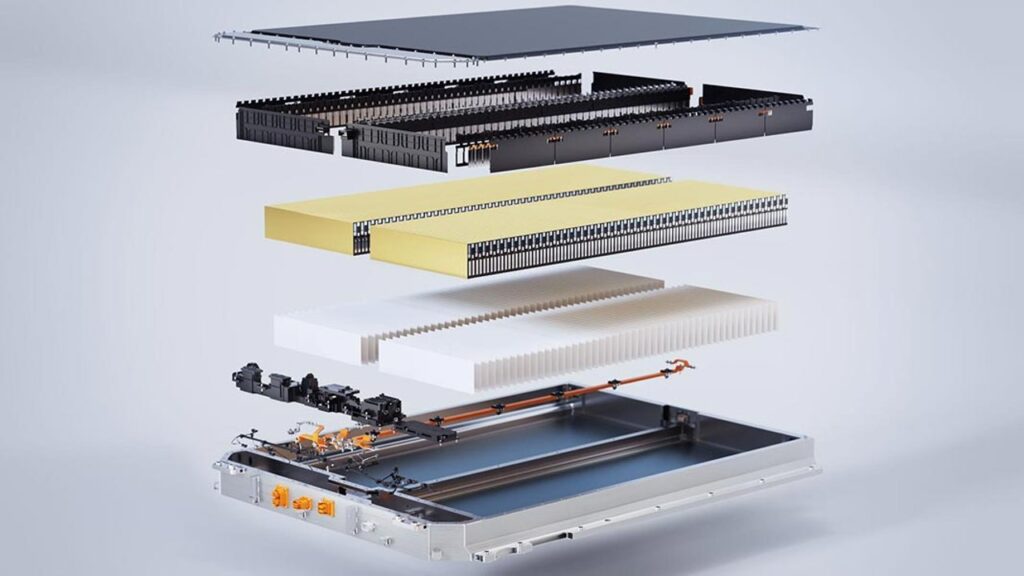With quick advancements in EV technology, companies are coming up with batteries that can potentially provide a range of around 1,000 km on a single charge.
With innovative and rapid development in EV battery technology, EVs with around 1000 km of range look promising and enticing. However, many naysayers argue that you don’t need EVs with such high range due to the battery weight and size concerns. Also, large batteries would require more time to charge. That will add to the already bleak charging infrastructure. But what if there are ways of just increasing the range of EVs without increasing their battery size?

You might also like: Nyobolt Battery Can Charge Fully In Just 6 Minutes
EVs With 1000 km Range Possible?
Scientists at Pohang University of Science and Technology (POSTECH) in South Korea have developed a new technology. It involves using micro-silicon particles and a gel-based electrolyte to enhance the ability of lithium-ion batteries to retain charge for longer periods. Now we know that researchers have been working on silicon to replace graphite for the higher charge capacity of the batteries for a while now. However, the property of nano-scale silicon to expand while charging and discharging has been its typical limitation.
To address that, the POSTECH scientists have come up with micro-scale silicon. This, in conjunction with an elastic gel electrolyte, will solve that problem. Inherently, silicon can hold 10 times more lithium ions than graphite. That lends a high battery capacity, in turn increasing the range significantly. Additionally, it prevents the rapid degradation of the battery. In fact, scientists noted that the micro-silicon particles allow a range of 965 km on a single charge.
Soojin Park co-authored the research paper and is a professor of Chemistry at POSTECH. He said, “We used a micro-silicone anode, yet we have a stable battery. This research brings us closer to a real high-energy-density lithium-ion battery system.” However, the production process of such micro-scale silicon anodes will be much more complex and expensive.

You might also like: How Is Formula E Helping Legacy Carmakers Build Better EV Technologies
Learn Electric Cars Says
We come across many technological breakthroughs due to so much investments and work being done in EV technology and R&D. This applies mostly to developing new EV battery technologies to ensure long range, short charging times and reducing the use of rare earth elements. We know that not all technologies will survive but we are at a stage where we need to explore all avenues before finally deciding on a handful of methods.
That will take years and could be different for difference markets/regions across the globe. We understand that there won’t be a silver bullet anytime soon. Still, as automobile enthusiasts, it is exciting to stay in touch with all that’s happening in this space and be a part of the transformation which will shape and power future mobility.

Pingback: Top Reasons For High Interest Rates On EV Loans
Pingback: EV Makers Reconsidering Their Ambitious Plans, Was Toyota Right All Along?
Pingback: All Finalists At 2024 World Car Awards - BYD Seal To Kia EV9